39 chemical labels provide quick facts
GHS Labeling Requirements: The Definitive Guide [2021 Update ... - Luminer However, the GHS takes into consideration that, sometimes, it's not possible to keep workers safe with only these six label requirements, which is why it also allows for supplemental information. 1. Product Identifier. This requirement identifies the actual hazardous chemical inside the container. Chemical Labels | Web's largest array of Hazcom and HazMat Labels Polyester Chemical Labels are supplied with a 1.8 mil thick, high tack adhesive that sticks well to a wide range of surfaces immediately on contact, and this is twice as thick as other adhesives. The high-tack adhesive creates an immediate solid bond between a label and a substrate that strengthens into a strong permanent bond that will not allow the label to be removed.
Know Your Hazard Symbols (Pictograms) | Office of Environmental Health ... Flame Exclamation Mark: An immediate skin, eye or respiratory tract irritant, or narcotic. Exclamation Mark Gas Cylinder: Gases stored under pressure, such as ammonia or liquid nitrogen. Gas Cylinder Corrosion: Materials causing skin corrosion/burns or eye damage on contact, or that are corrosive to metals. Corrosion
Chemical labels provide quick facts
PDF BRIEF - Occupational Safety and Health Administration labeling of chemicals. The revised standard requires that information about chemical hazards be conveyed on labels using quick visual notations to alert the user, providing immediate recognition of the hazards. Labels must also provide instructions on how to handle the chemical so that chemical users are informed about how to protect themselves. Chemical labels explained / RHS Gardening - Royal Horticultural Society This section of the label normally includes: Protection during use, e.g. Wash hands and exposed skin after use; Environmental protection, e.g. Harmful to fish or other aquatic life; Storage and disposal, e.g. Store in original container; Additional label information. The label should also provide the following information: Field of use restrictions, e.g. Pesticide Labels | US EPA Pesticide labels translate results of our extensive evaluations of pesticide products into conditions, directions and precautions that define parameters for use of a pesticide with the goal of ensuring protection of human health and the environment.
Chemical labels provide quick facts. Factor-Label Method in Chemistry: Definition, Examples & Practice ... The Factor-Label Method. Believe it or not, one simple method can be used to accomplish many of the basic calculations in chemistry. The method does not involve years of calculus courses or other ... Comparing Chemical Labeling Systems - Quick TIps #198 - Grainger KnowHow The Hazard Communication Standard now requires chemical manufacturers, importers and distributors to provide a shipped container label that has six standardized elements: Product Identifier - Must match product identifier on SDS. Manufacturer/Supplier Contact Information - Including name, phone number and address. How To Read Food and Beverage Labels - National Institute on Aging At the top of the Nutrition Facts label, you will find the total number of servings in the container and the food or beverage's serving size. The serving size on the label is based on the amount of food that people may typically eat at one time and is not a recommendation of how much to eat. Read more about serving and portion sizes. Green Label Plus - CRI In 1992, CRI launched its Green Label program to test carpet, cushions, and adhesives to help specifiers identify products with very low emissions of Volatile Organic Compounds (VOCs). In the 2000s, CRI launched the Green Label Plus programs for carpet, adhesives, and cushion. These enhanced programs set higher standards for IAQ and let ...
How to Understand and Use the Nutrition Facts Label | FDA Dietary fiber, vitamin D, calcium, iron ad potassium are nutrients on the label that Americans generally do not get the recommended amount of. They are identified as nutrients to get more of.... What are GHS Safety Data Sheets? - iacs Safety data sheets (SDS) are a critically important part of the GHS and global chemical safety. They provide extensive information on a substance, its supplier and the safe handling and use of it. You are then able to conduct chemical risk assessments around your workplace and ensure that each area is safe for work. Food labels - Better Health Channel Reduced fat or salt - should be at least a 25% reduction from the original product. Low fat - must contain less than 3% fat for solid foods (1.5% for liquid foods). Fat free - must be less than 0.15% fat. Percentage of fat - remember 80% fat free is the same as 20% fat, which is a large amount. Importance of labelling in marketing | Packaging-labelling It is essential to use a good quality material for the sticker. Importance: • The role of packaging and labeling has become quite significant as it helps to grab the attention of the audience. • Labelling and packaging can be used by marketers to encourage potential buyers to purchase the product. • Packaging is also used for convenience ...
Labeling requirements of hazardous chemicals. | Occupational Safety and ... The using employer has the responsibility to ensure that each container of hazardous chemical in the workplace is labeled, tagged, or marked with the following information: i) Identity of the hazardous chemical(s); ii) Appropriate hazard warnings. Ms. Dietrich's letter indicates that Dr. Dietrich's office is labeling all hazardous chemical containers. Chemical safety data sheets - COSHH - HSE Safety data sheets provide information on chemical products that help users of those chemicals to make a risk assessment. They describe the hazards the chemical presents, and give information on... Quick & Dirty Guide to GHS Chemical Labels | Avery.com There are three ways you can print durable and/or BS5609-compliant GHS chemical labels: 1) Printing onsite with standard printers. Extremely flexible and efficient, this method requires durable blank GHS chemical labels engineered to work with approved laser or pigment inkjet printers. 2) Printing thermal transfer labels onsite. Chemical Container Labeling - Northwest Safety Chemical Container Labeling The Hazard Communication Standard (HCS) describes chemical labels as information provided through a group of written, printed, or graphic appropriate elements concerning a hazardous chemical. These should be that placed on the immediate container of a hazardous chemical.
Labeling Requirements | US EPA The label provides critical information about how to handle and safely use the pesticide product and avoid harm to human health and the environment. Labeling Requirement Resources. The Label Review Manual - The goal of the Label Review Manual is to improve the quality and consistency of labels. The manual can be useful for state label reviewers, registrants and other individuals interested in producing readable, unambiguous pesticide labels.
Preservatives | Uses, Benefits, and Chemical Safety Facts They can also be man-made, or synthetic chemicals. "Natural" or "organic" chemicals are not necessarily healthier than synthetic or man-made chemicals. In fact, artificial preservatives such as sodium nitrate, sodium benzoate and propionate have long been used in food preparation because they are effective in small amounts.
Product Labels: How to Identify Chemicals and Other Ingredients - WebMD In a CDC study, researchers found at least 148 chemicals in the bodies of most Americans. A separate study by the Environmental Working Group found 287 chemicals in the umbilical cord blood of...
PDF Laboratory Safety Labeling and Transfer Facts of Chemicals Facts Laboratory Safety Labeling and Transfer of Chemicals Permanent Container Labels . Employers must ensure that no worker uses, stores, or . allows any other person to use or store any hazardous . substance in a laboratory if the container (including . bags, barrels, bottles, boxes, cans, cylinders, drums
Safety Data Sheets | Free SDS Database | Chemical Safety GHS is a set of international guidelines that were developed by the United Nations. These guidelines were created to ensure the safe manufacturing, handling, use, disposal, and transport of hazardous materials. The GHS system is used to: Classify chemical data and hazard criteria. Identify a chemical's health, physical, and environmental hazards.
Safety data sheets | Safe Work Australia Almost every hazardous chemical will require Safety data sheets (SDS). SDS have important safety information about hazardous chemicals that can help keep your workers safe. If you supply, use or store hazardous chemicals, you must keep copies of the SDS in your workplace. If you manufacture or import chemicals, you are responsible for making a ...
The New Nutrition Facts Label | FDA The U.S. Food and Drug Administration (FDA) has updated the Nutrition Facts label on packaged foods and drinks. FDA is requiring changes to the Nutrition Facts label based on updated scientific...
Differences between EU and US nutrition labels go far beyond ounces and ... Then there's the nutrition facts label, which must include serving size, calories per serving size, calories from fat as well as the percentage of daily recommended values for fat based on a ...
Solvents Uses & Properties | Chemical Safety Facts Isopropyl alcohol is used as a windscreen de-icing and cleaning solvent because it stays in liquid form well below the freezing point of water and therefore helps to remove the ice. It removes stains that appear on the windscreen and is also used in the home in window cleaning products. Aliphatic hydrocarbons are used in the production of tires.
Understanding Ingredients on Food Labels | American Heart Association The American Heart Association recommends no more than 1,500 milligrams of sodium a day, but the average American consumes twice that much. Perhaps trickiest of all is trans fats. You won't find these listed as trans fats at all, but rather ingredients that contain trans fats: mainly partially hydrogenated oil and hydrogenated oil.
11 Quick Facts About Phosphoric Acid (a Chemical in Coca Cola) Phosphoric acid is a clear, colorless, odorless liquid with a syrupy consistency. 2. Phosphoric acid is used as an acidifying agent to give colas their tangy flavor. 3. Due to the use of phosphoric acid, cola is a actually more acidic than lemon juice or vinegar! The vast amount of sugar acts to mask and balance the acidity.
Pesticide Labels | US EPA Pesticide labels translate results of our extensive evaluations of pesticide products into conditions, directions and precautions that define parameters for use of a pesticide with the goal of ensuring protection of human health and the environment.
Chemical labels explained / RHS Gardening - Royal Horticultural Society This section of the label normally includes: Protection during use, e.g. Wash hands and exposed skin after use; Environmental protection, e.g. Harmful to fish or other aquatic life; Storage and disposal, e.g. Store in original container; Additional label information. The label should also provide the following information: Field of use restrictions, e.g.
PDF BRIEF - Occupational Safety and Health Administration labeling of chemicals. The revised standard requires that information about chemical hazards be conveyed on labels using quick visual notations to alert the user, providing immediate recognition of the hazards. Labels must also provide instructions on how to handle the chemical so that chemical users are informed about how to protect themselves.
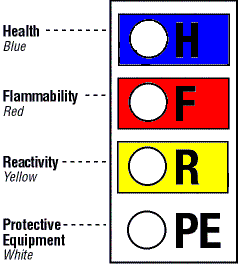
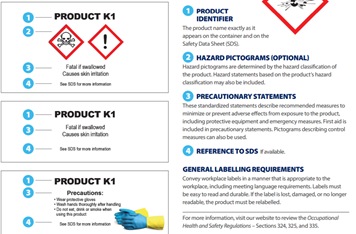

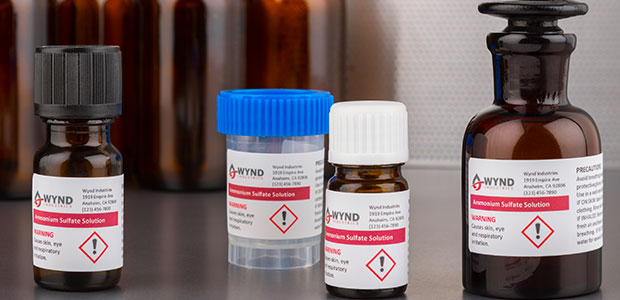
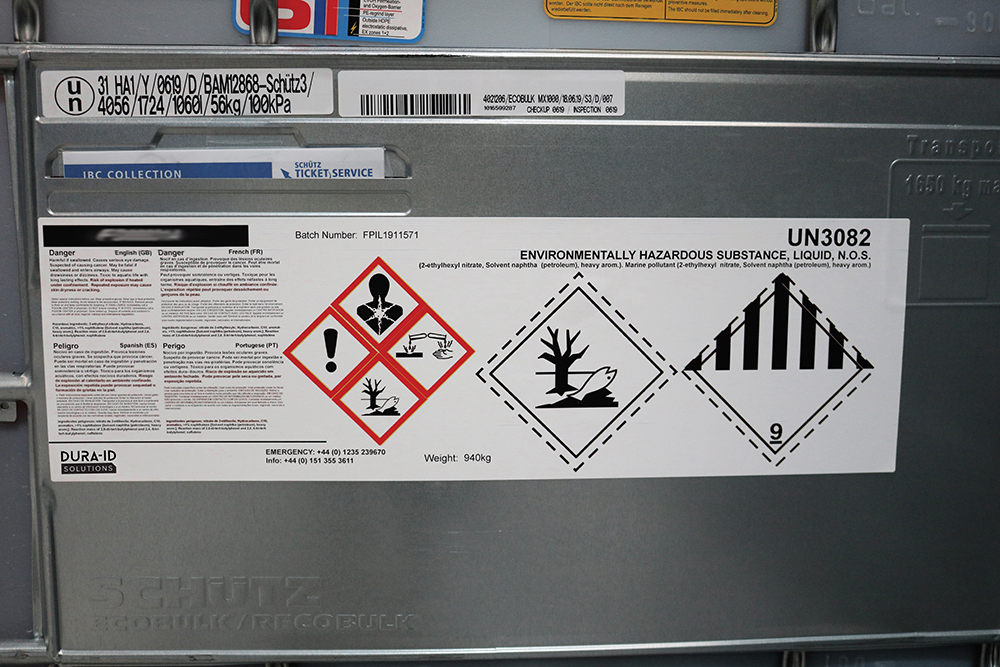
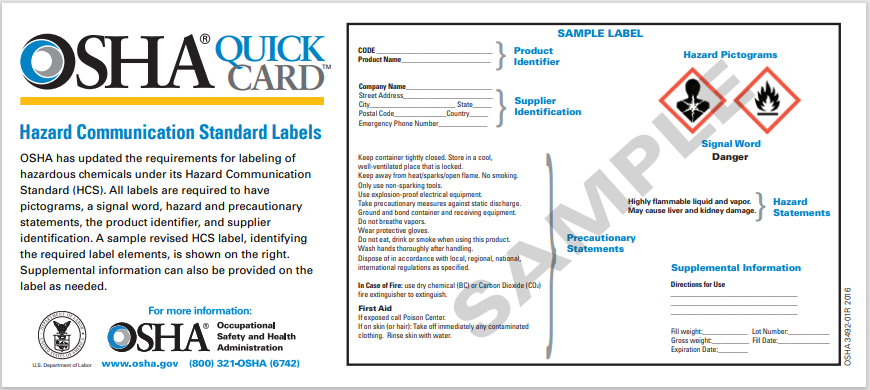
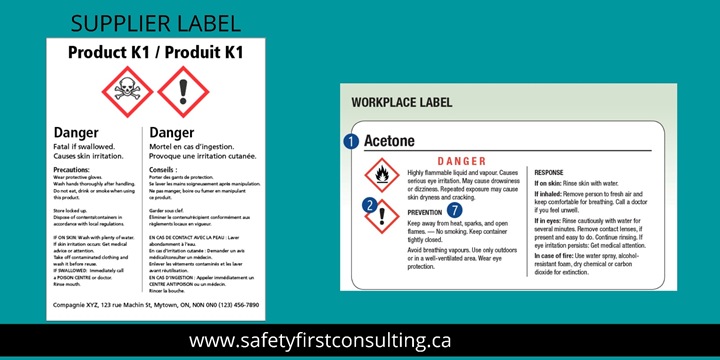



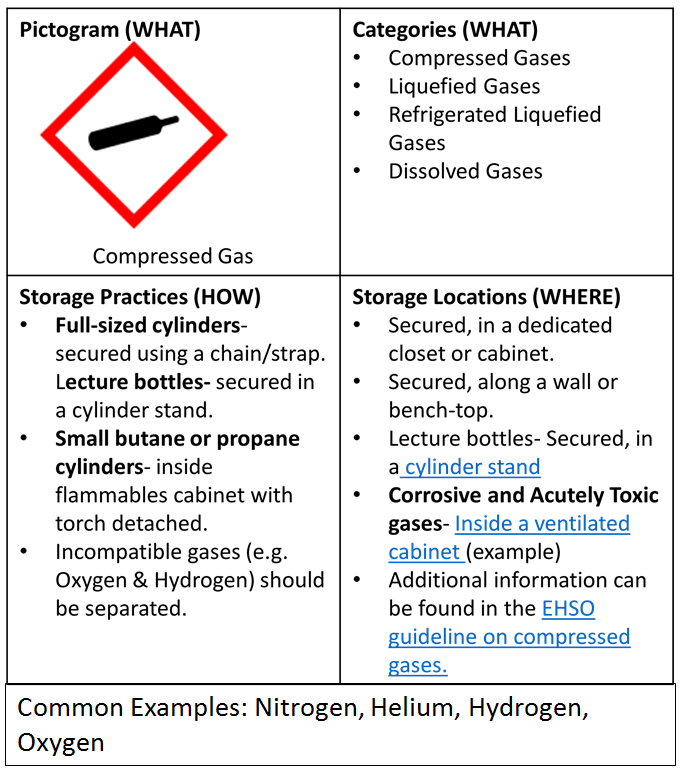
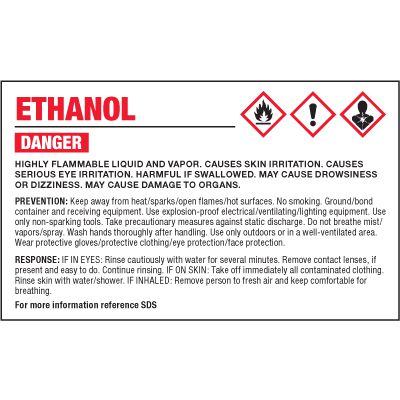
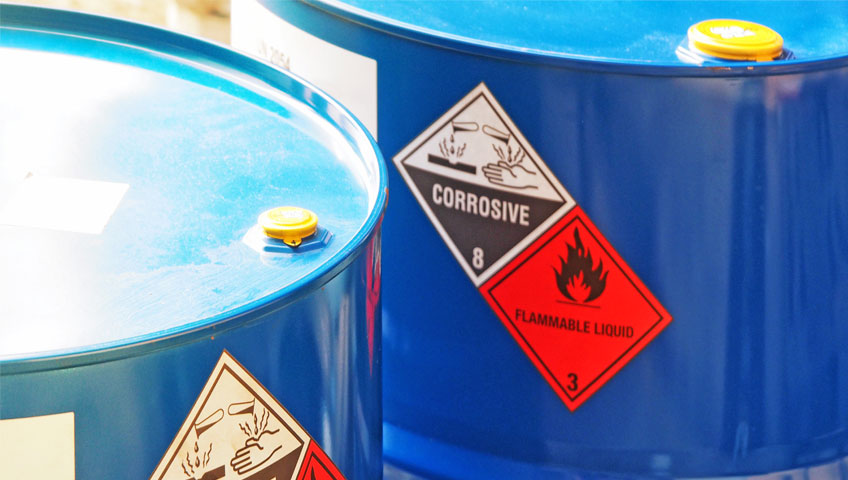
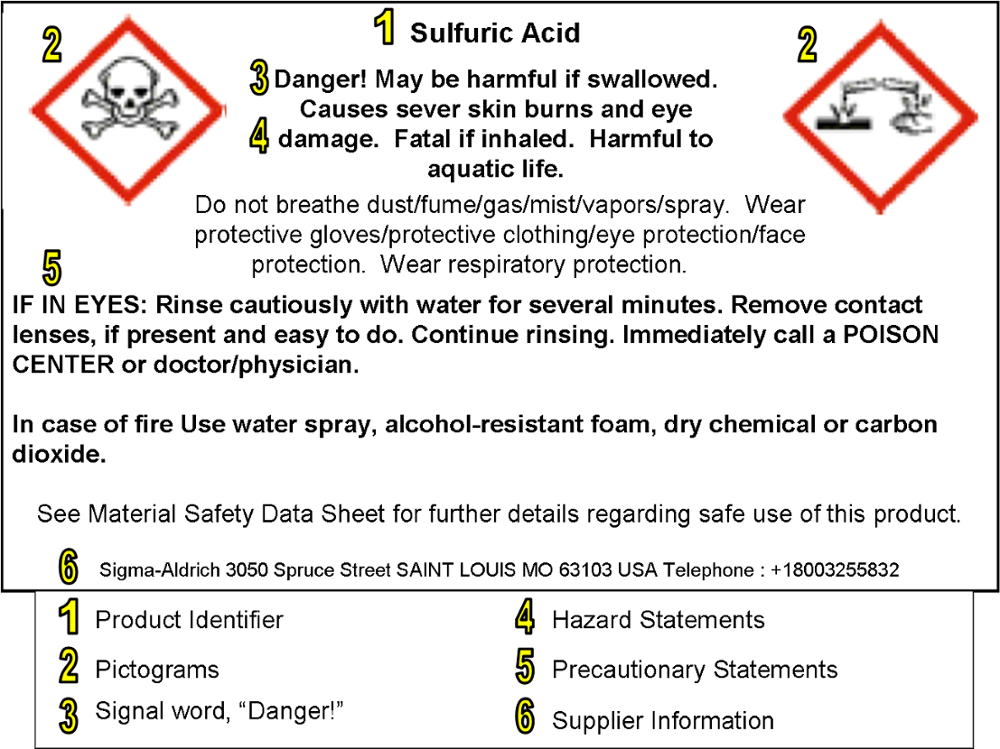

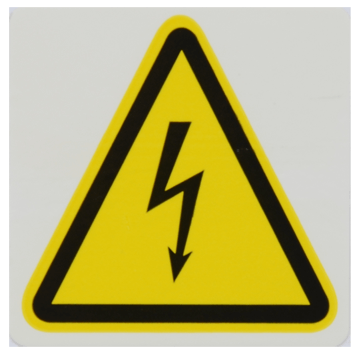

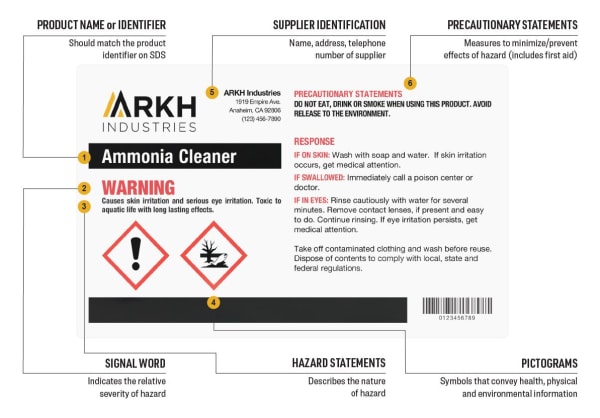
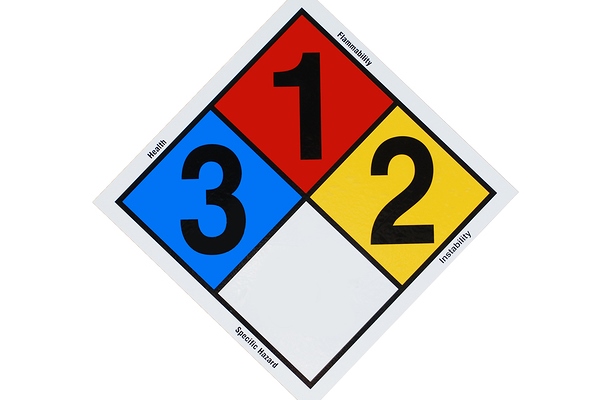
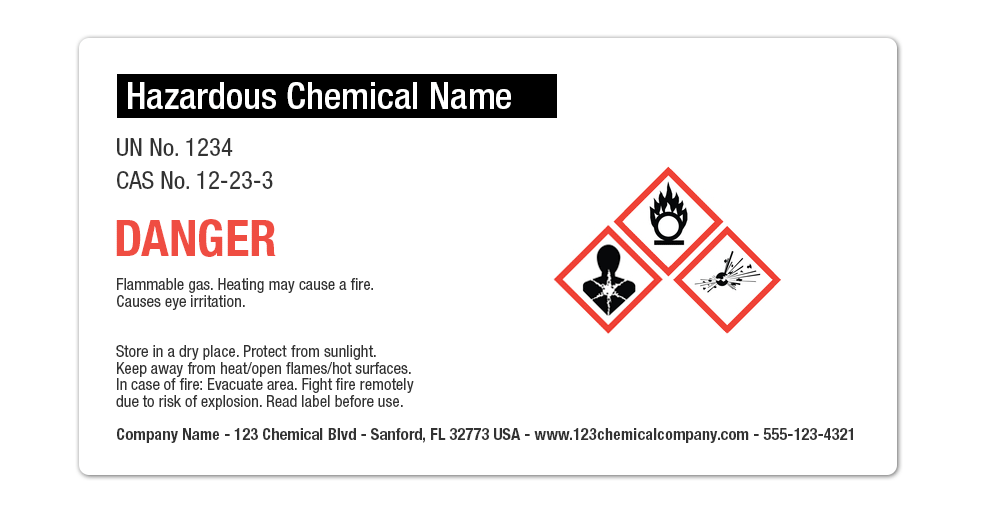

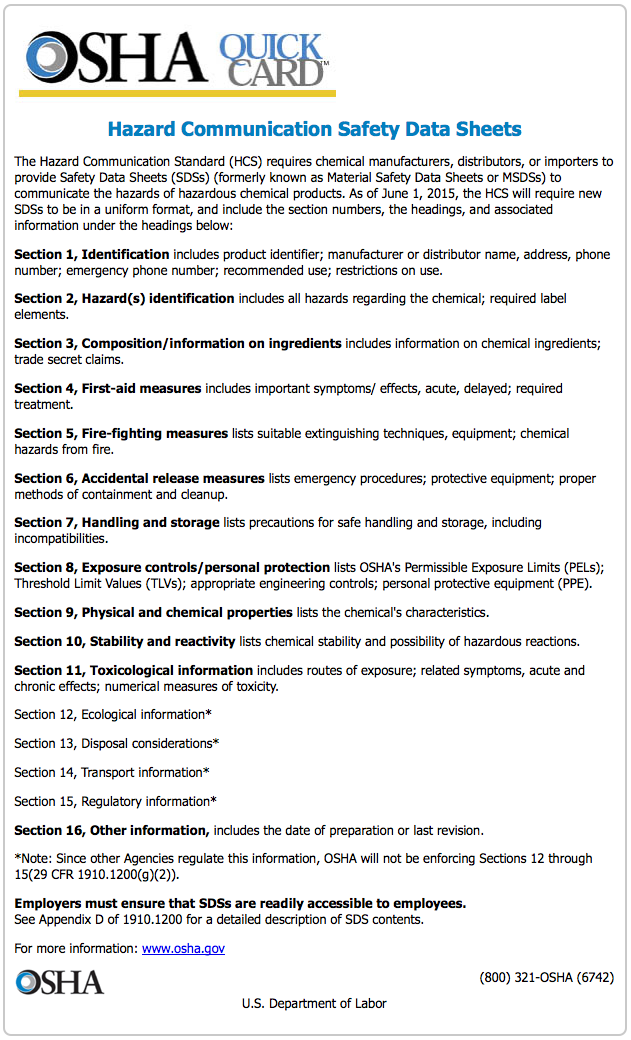
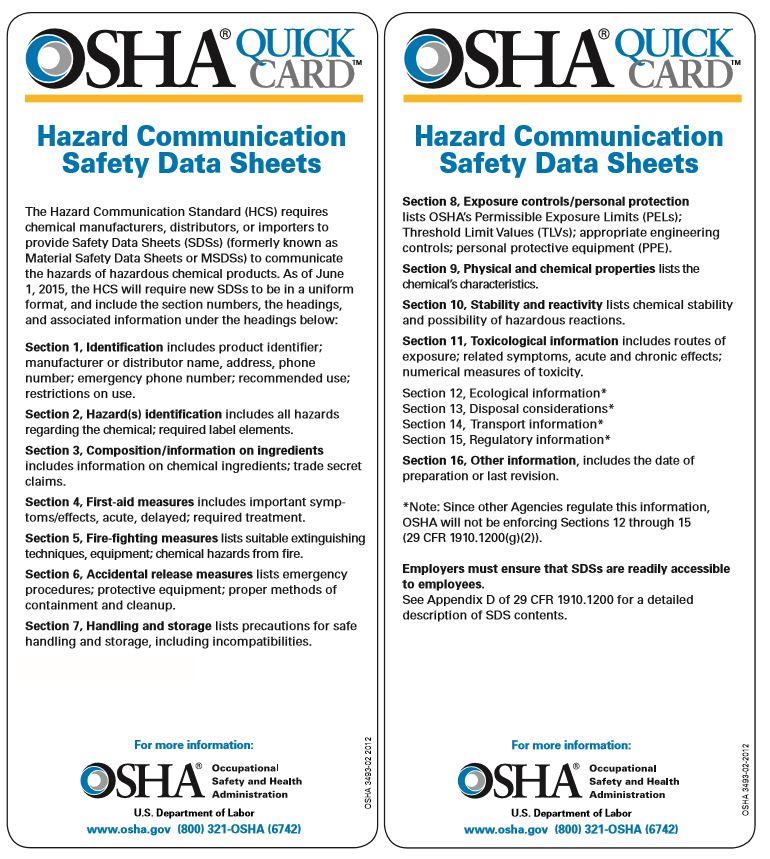

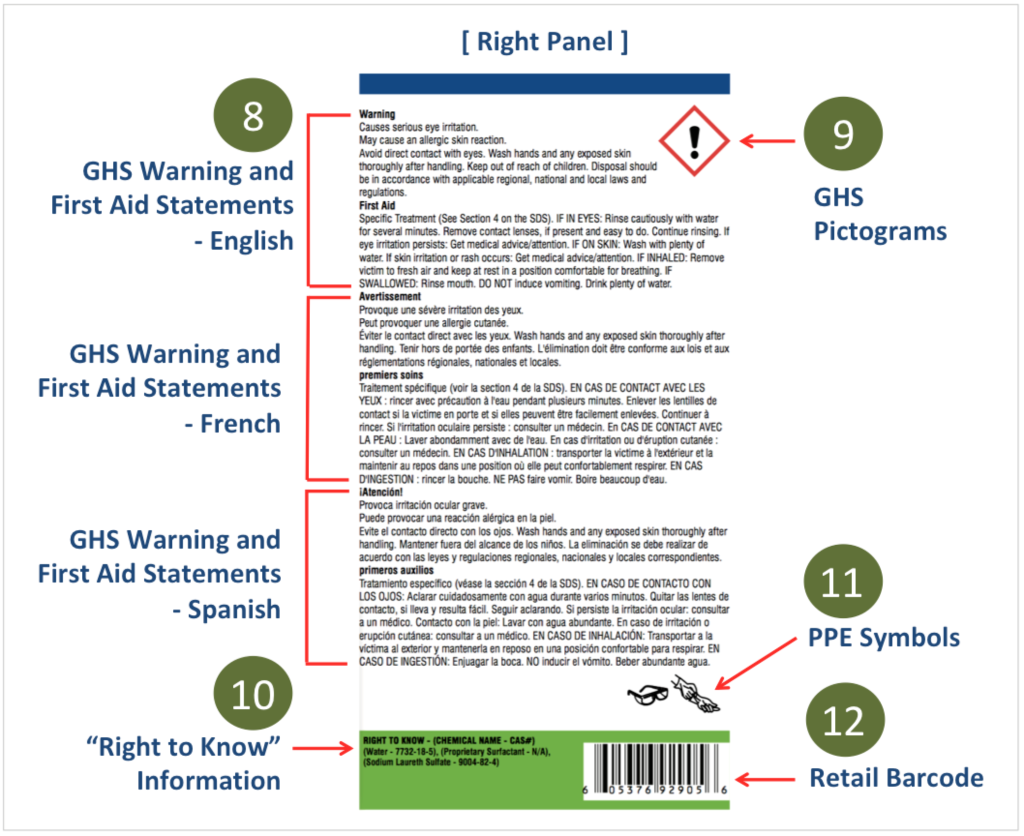
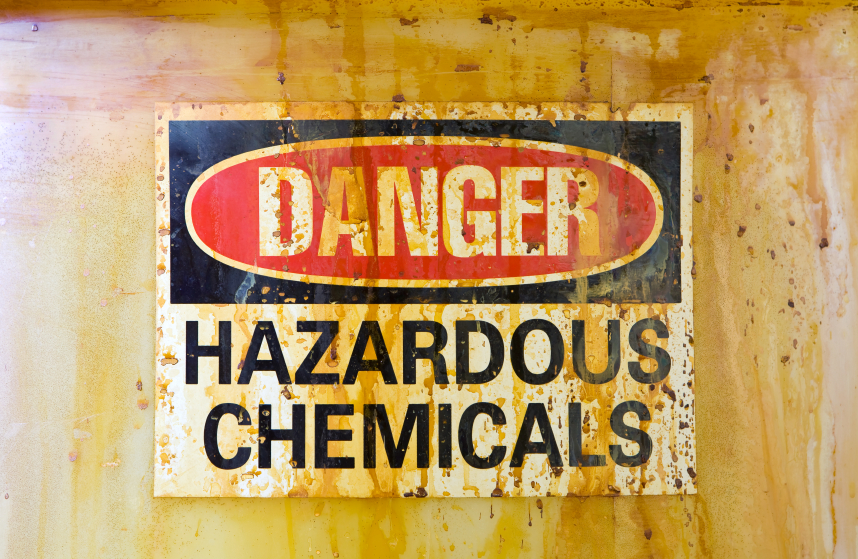
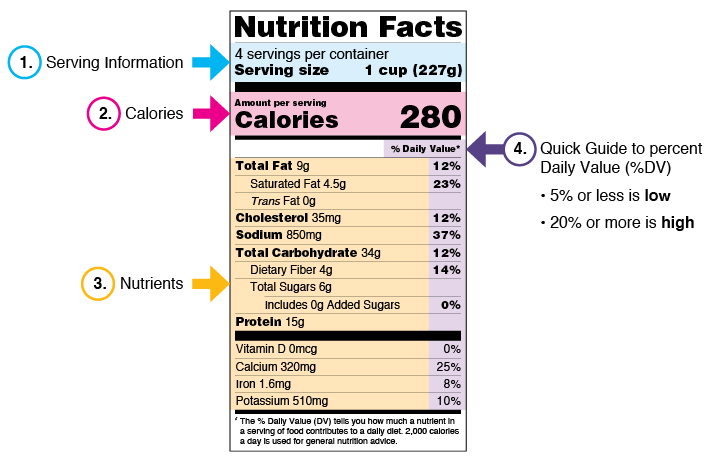


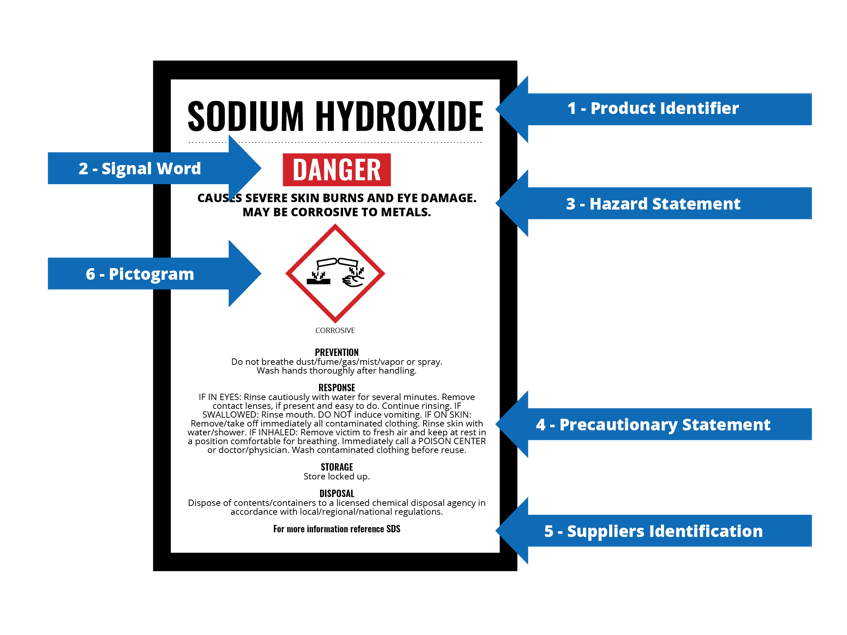
Post a Comment for "39 chemical labels provide quick facts"